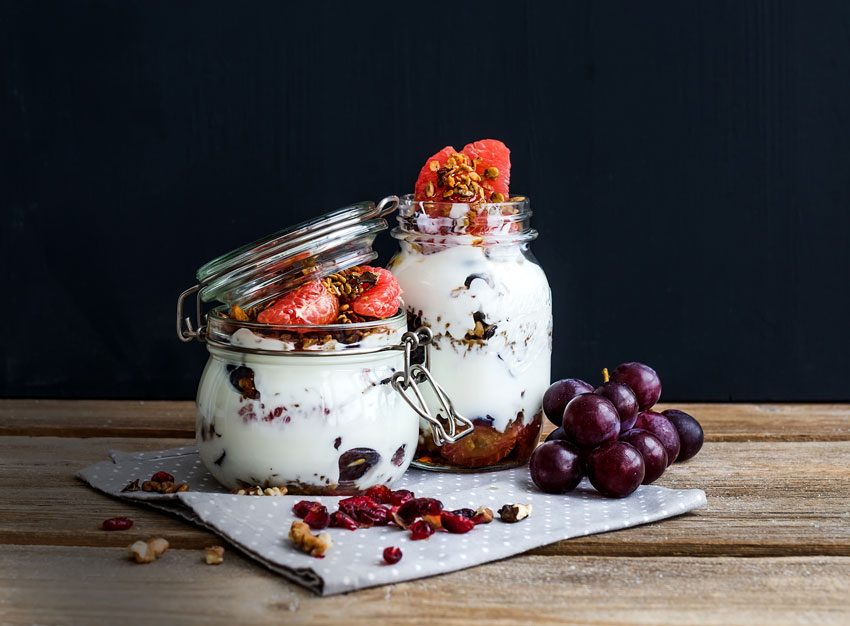How Fermentation of Food, Probiotics and Prebiotics Interrelate
Fermented food has been making a large comeback in recent years. Trendy products being sold on the market today, for instance, kombucha the effervescence black or green tea, the finely cut cabbage of sauerkraut, the traditional Korean vegetable side dish kimchi, the north caucasian origin of a cow, goat or sheep milk kefir and to the oldest sourdough bread makers in Switzerland of 3700 BC.
However, in a world of misconceptions towards learning the process behind the word fermentation, it certainly gets a bad wrap. Fermentation is sometimes thought of as being rancidity, tasting or smelling of decay or just overall bad quality. Quite possibly the rapid invention of processed foods beginning from the year 1910 changed the way we look at food today. Is fermentation thought of in a bad connotation? That my friend is misleading and not the case for fermented food.
Fermented food is in fact very beneficial to the inner lining of the gut and can kill off pathogenic, aka ‘bad’ bacteria potentially living inside of your intestines; this will be followed up later in the article. Now, let’s break down the fermentation of food.
So, what exactly is fermentation? Well, fermentation is a process that converts carbohydrates into an alcohol or organic acid, this involves the use of live microorganisms, such as yeast or bacteria. Fermentation decomposes the organic substances by the action of living organisms – enzymes. During the fermentation process, the proteins, starches, and fats within the food are broken down into more simpler compounds. Basically, fermentation is broken up by enzymes outside the body, in conclusion, the fermentation of food results in predigested food. Why is this beneficial? Ultimately, fermented food requires less enzyme output and digestive work in comparison to eating raw food or food that has not undergone fermentation.
The fermentation process encourages healthy strains of live bacteria – Lactobacilli and Bifidobacteria to flourish, simplifying the known term probiotics. Do you see why health professionals call healthy live bacteria “probiotics?”
The fermentation of food produces probiotics, probiotics is made from the fermentation process. Probiotics is a lively strain of healthy organisms, the kind of bacteria you want living and thriving inside your gut. It is the most all-natural remedy to maintain and restore a happy balance of good and bad bacteria within your digestive system. Taking everything into account, the introduction of fermented food into your dietary regime contains the beneficial bacteria we are all striving for, is easier to digest and is proven by continued research for effectively managing gastrointestinal conditions.
So I’m sure you have heard of the term prebiotics thrown around, except you may ask what does it mean? Prebiotics works in correlation with probiotics, as probiotics “introduces” the gut to good bacteria through the use of fermented food. Prebiotics, in essence, is a specialized plant fiber, such as garlic, onions, chicory root, bananas, asparagus, apples, oats and more! These types of fiber foods nourish the good bacteria preexisting in the large bowel and colon. A simpler phrase, prebiotics acts a fertilizer to help promote the growth of the probiotics that were first introduced to the digestive system through the consumption of fermented foods.
Several studies reveal a healthy bacterial ecosystem plays a direct role in mental health and those who intake an equivalent amount of probiotics and prebiotics experience fewer issues related to anxiety, depression, and a decrease in a word we all dislike, ‘cortisol’ – the stress hormone.
With all that being said, would you like to strengthen your inner bowel wall for a healthy state of mind? I know, I certainly would. High sky anxiety and external stressors – no more!
I will first try me some fermented food.

